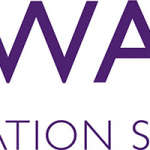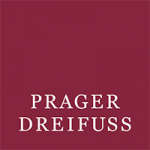K&L Gates on the growth, development and sophistication emerging in the Qatar legal market
Introduction
Over the decade in which our office has been operating in Doha, we have witnessed considerable growth, development and sophistication emerging in the Qatar legal market. Qatar’s strategy is to modernise its legal investment framework making access to the market easier for investors, ensuring efficient business operations, allowing capital to follow businesses in the market, and finally guaranteeing a safe exit by investors from the market if they wish to divest or repatriate capital1. To this end Qatar has been issuing laws and making reforms which started in 2015 when the new Commercial Companies Law was enacted, followed by the establishment of the legal and regulatory regime of the Qatar Free Zones in 2017 to 2018. Building on from that, Qatar relaxed its foreign investment restrictions, increased business transparency, introduced sweeping reforms to the judicial system, and most topically, introduced what is colloquially known as the ‘World Cup Framework Law’. This article provides the reader with a bird’s-eye view of these latest legal developments in Qatar.
Qatar Law No. 10/2021 concerning the measures for hosting FIFA World Cup Qatar 2022
With the world’s focus on the FIFA 2022 World Cup 2022 Qatar, scheduled to take place from 21 November 2022 to 18 December 2022, the ‘World Cup Framework Law’ takes centre stage in the legislative matrix. This law includes special standards and guarantees agreed upon in the hosting contract with FIFA, and the representations and undertakings issued by Qatar to FIFA on 22 February 2010, in relation to the several key commercial issues.2
One of the aims of this law is to facilitate doing business in preparation for and during the World Cup for FIFA, its contractors and suppliers including setting up 100% foreign-owned companies.
Qatar Law No. 1/2019 New Foreign Investment Law
One of the most significant changes in this context has been the enactment of a new Foreign Investment Law No. 1/2019. This law has created a legal environment with the aim to attract and allow foreign investment, and safeguard investors’ rights. It has been enacted to stimulate business opportunities and help achieve Qatar Vision 2030’s aims of a diversified economy. One of the key points in this particular law is the right of foreign investors to own 100% of a company’s capital. This represents a radical shift from the prior corporate regime, in which a Qatari national (or Qatari company) had to be a majority shareholder (leading to what was colloquially known as the 51/49 ownership structure). Foreign investors have also been granted the right to invest in almost all economic sectors subject to obtaining the relevant approvals from competent authorities.3
The law provides additional investment incentives and guarantees, including the right to allocate the necessary (onshore)4 land for investors, either by renting or under a usufruct, the right to import goods both for their project operations or expansion. The law also exempts foreign investors from income tax and customs duties on their imports of machinery and equipment required for their projects, and on raw materials and semi-manufactured materials which they need for production, and which are not available in the local markets.
This law allows foreign investors to repatriate all their investment returns, the results of any liquidation of their investments, or which has arisen from a settlement in an investment dispute or any compensation received by law. Finally, foreign investors have the right to transfer their ownership of an investment to any other foreign investors or other national investors.
Qatar Law No. 13/2019 on the establishment of the Media City Qatar
According to article 3 of the law, Media City aims to manage and develop media activity, and promote its position as a hub to attract international media, technology companies, related research and training institutions, and digital media. It also aims to support and promote media and digital technology projects, and to achieve the economic and professional integration with various State projects, and to provide an interactive environment through the licensed companies operating in Media City. On 3 February 2021 it was reported that Media City has signed a strategic partnership with Euronews, one of the most renowned media networks in the world. The agreement is considered an important milestone in Media City’s effort to attract major media networks to Qatar.5
Qatar financial markets authority’s new offering and listing rules
The Qatar financial markets authority issued new Offering and Listing Rules in 2021. These new rules apply to listing and offering in both the primary and secondary market on the Qatar Stock Exchange. The aim of the new rules is to encourage new listing and offering opportunities, and mainly to encourage small and medium family business to list on the secondary market to increase their capital. Significantly, the new rules allows – in addition to companies established in the Qatar financial centre – companies incorporated in the Qatar free zones to list or offer their shares on the Qatar Stock Exchange.
Law No.1 of 2020 on the Unified Economic Register Law
The Unified Economic Register Law compels the Ministry of Commerce and Industry (MoCI) to establish a unified economic registry (the Registry), with the goal of encouraging transparency in economic and financial transactions (and creating a register of beneficial ownership). Previously company information in Qatar was confidential, however under article 6, the MoCI is compelled to make certain basic information of a described list of entities available to the public6. These entities range from incorporated companies, to sole enterprises, trusts, non-profit organisations and freelance professionals. In order to exercise their right of access, members of the public will be able to make an application to MoCI to obtain an extract of the Registry or a certificate of particular information, or a certificate of absence in the case of non-registration.
Mediation Law (Law No. 20 of 2021) and Commercial Court Law (Law 21 of 2021)
Mediation has not historically been commonly used as a form of dispute resolution in Qatar. Parties often dismissed it for fear of significant time and cost being invested, and a settlement agreement being reached, but then not subsequently honoured, with no existing statutory framework in Qatar to enforce it.
On 7 October 2020 Qatar ratified the Singapore Convention on mediation. On 18 October 2021 Qatar enacted the Mediation Law7 which outlines, among other things, the procedures and methods of mediation, conditions to be met by the mediator, provisions for stay of proceedings, and settlement agreement procedures. On the same day in 2021 Qatar enacted the Trade Court Law8 which established the Investment and Commercial Court (also known as the Trade Court). The Mediation Law enables parties to the settlement of an international dispute by mediation to enforce the settlement in the same manner that international arbitral awards are recognised and enforceable under the New York Convention on the Recognition and Enforcement of Foreign Arbitral awards. The establishment of a new Commercial Court, alongside arbitration and investment mediation institutions, represents one further reason for national and foreign investors to continue investments in Qatar’s fast-expanding economy.
Conclusion
These new laws have introduced many positive changes to the business and legal landscape, although many of the implementation mechanics of these new laws are still being tested in practice. From our experience we feel there is more room to promote the option of setting up 100% foreign-owned companies in accordance with the provisions of the new Foreign Investment Law, or under the umbrella of the Qatar Free Zones, Qatar Science and Technology Park, and soon Media City. The Qatar Financial Centre has continued to develop and extend the scope of its activities to attract more investments and business, while the Qatar Science and Technology Park continues to attract research and development business. In tandem with the changes to the business landscape, Qatar is continuously working on bringing about reforms to the judicial system. This was evident when the Arbitration Law was issued in 2017, and more recently with the issuing of the Mediation Law and the Commercial Court Law. We view the Mediation Law, and Commercial Court Law as welcome additions to the Qatar legal landscape. These laws should be readily used by practitioners working in the Middle East so that mediation can become an automatic, reflexive part of the dispute resolution toolkit.
By Matthew R.M Walker (partner) and Niel Coertse (senior associate) for K&L Gates, Doha
- https://www.lexismiddleeast.com/magazine/LexisMiddleEastLawAlert/2020_September_10/?V=pdf
- Procedures related to entry and exit permits, passports, and travel, work permits, tax exemption, safety and security, bank and foreign exchange operations, protection and exploitation of commercial rights, communications and information technology, legal issues and compensation, and accommodation
- Certain economic sectors are not open to foreign investors, such as banking, insurance companies and commercial agencies. Foreign investors are prohibited to own more than 49% of public shareholding companies in Qatar, however, it is possible to exceed this cap, by obtaining special approval from the Council of Ministers. The Council of Ministers are entitled to add new areas where foreign investors are prohibited
- This is land which is not within a freezone
- https://thepeninsulaqatar.com/article/03/02/2021/Media-City-Qatar-signs-strategic-partnership-with-Euronews
- Defined as being information which allows for the identification of the entity stated above and which specifies the legal structure, main characteristics and purpose for establishment of such an entity
- Law No. 20 of 2021 Promulgating the Law of Mediation in Settlement of Civil and Commercial Disputes
- Law 21 of 2021 Promulgating the Law on the Establishment of the Investment and Commercial Court















